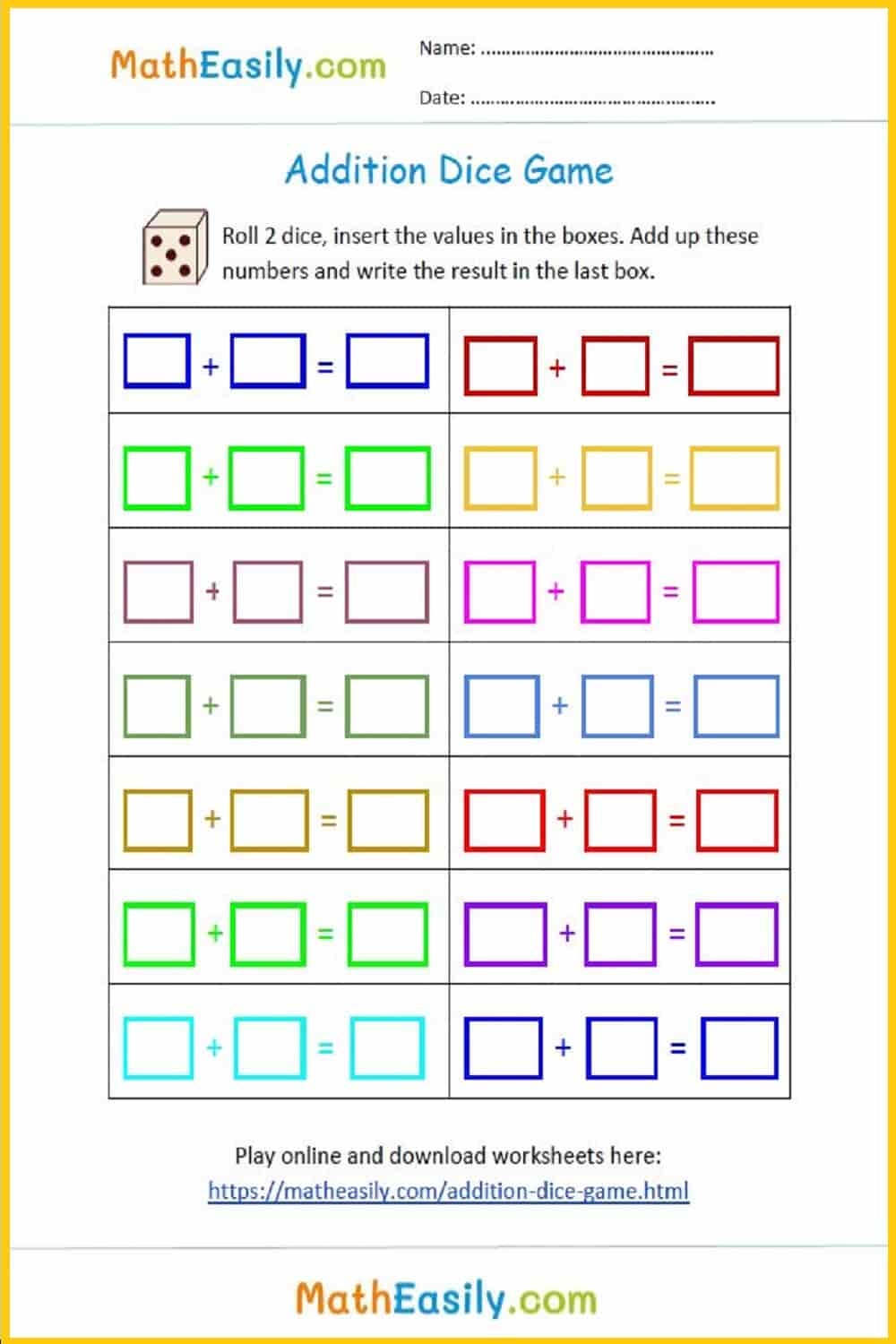Math can be a challenging subject for many students, but it doesn’t have to be dull and boring. One way to make learning addition fun is by incorporating games into the lesson. By using free printable addition math games, kids can practice their math skills in an engaging and interactive way.
These games are not only educational but also entertaining, making it easier for children to grasp mathematical concepts. Whether you are a teacher looking for new resources or a parent wanting to supplement your child’s learning at home, these free printable addition math games are a great option.
Free Printable Addition Math Games
1. Addition Bingo: This classic game is a fun way for kids to practice their addition skills. Simply create bingo cards with addition problems instead of numbers, and have students solve the problems to mark off the squares. The first person to get a bingo wins!
2. Math War: This game is played with a deck of cards, with each player flipping over two cards and adding them together. The player with the highest sum wins the round. This game not only improves addition skills but also helps with quick mental math calculations.
3. Addition Race: Create a board game where players move their game pieces along a path by solving addition problems. The first player to reach the finish line wins. This game is a great way to practice addition in a competitive and engaging way.
4. Math Puzzles: Print out puzzles with missing numbers that need to be filled in with the correct sum. Kids will have to solve the addition problems to complete the puzzles, making it a fun and challenging activity.
5. Addition Scavenger Hunt: Hide addition problems around the room or outdoor space and have kids search for them. Once they find a problem, they have to solve it before moving on to the next one. This game is not only educational but also gets kids up and moving.
By incorporating these free printable addition math games into your lesson plans or home learning activities, you can make math more enjoyable for kids. These games are not only effective in improving addition skills but also help children develop critical thinking and problem-solving abilities.
